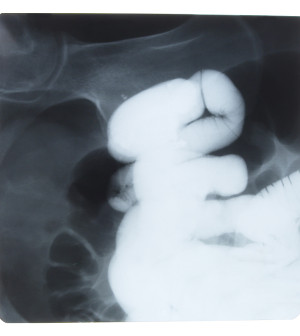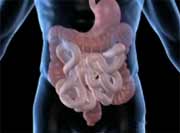- Recognizing the Signs of Hypothyroidism
- 10 Strategies to Overcome Insomnia
- Could Artificial Sweeteners Be Aging the Brain Faster?
- Techniques for Soothing Your Nervous System
- Does the Water in Your House Smell Funny? Here’s Why
- Can a Daily Dose of Apple Cider Vinegar Actually Aid Weight Loss?
- 6 Health Beverages That Can Actually Spike Your Blood Sugar
- Treatment Options for Social Anxiety Disorder
- Understanding the Connection Between Anxiety and Depression
- How Daily Prunes Can Influence Cholesterol and Inflammation
Crohn’s and Colitis May Be Tied to Risk of Heart Attack, Stroke


MONDAY, Oct. 14People with inflammatory bowel disease may be at increased risk for heart attack and stroke, a new study suggests.
Researchers analyzed data from more than 150,000 inflammatory bowel disease (IBD) patients who took part in nine studies. They found that these patients had a 10 percent to 25 percent increased risk of stroke and heart attack, and that this increased risk was more prevalent among women.
Doctors need to be aware of this link and should focus on controlling other stroke and heart attack risk factors, such as smoking, high blood pressure and diabetes, study author Siddharth Singh, of the Mayo Clinic in Rochester, Minn., said in a news release from the clinic.
The study was scheduled for presentation Monday at the annual meeting of the American College of Gastroenterology, in San Diego. Research presented at medical meetings should be viewed as preliminary until published in a peer-reviewed journal.
Crohn’s disease and ulcerative colitis — the most common forms of IBD — affect 1.5 million Americans. In these patients, inflammation of the intestine leads to rectal bleeding, diarrhea, abdominal cramps and pain, fever, and weight loss.
Patients with IBD need to work with a doctor to manage their condition, control their stress, eat a healthy diet and get moderate exercise. Smoking is a major risk factor for IBD patients, and those who smoke should try to quit, the researchers said.
Although the study found an association between IBD and an increased risk for heart attack and stroke, it did not prove a cause-and-effect relationship.
More information
The U.S. National Institute of Diabetes and Digestive and Kidney Diseases has more about Crohn’s disease.
Source: HealthDay
Copyright © 2026 HealthDay. All rights reserved.










